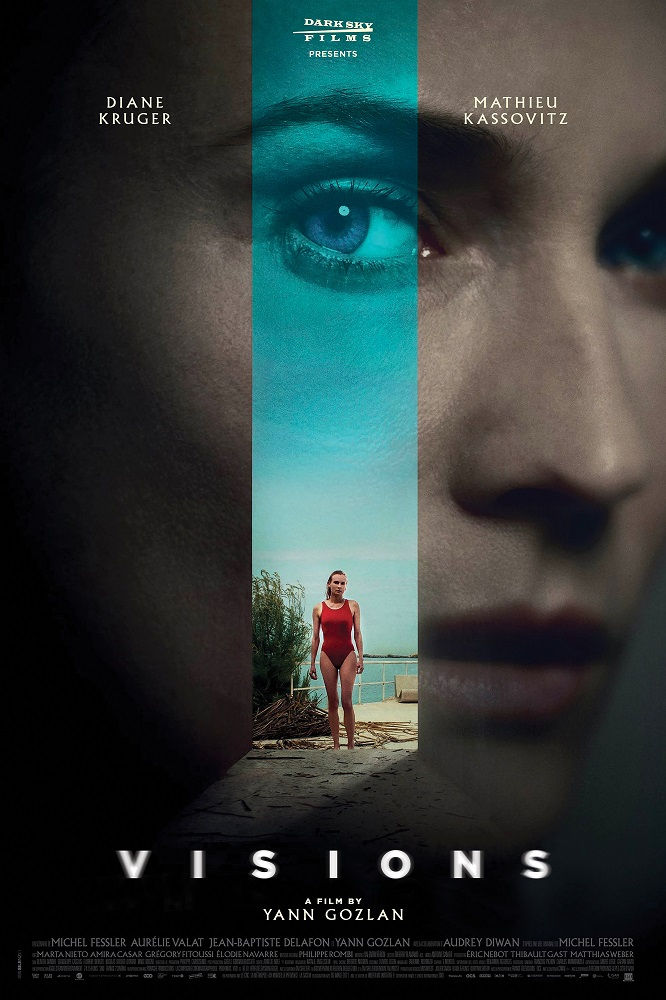Le Week-End (A PopEntertainment.com Movie Review)
- PopEntertainment

- Mar 25, 2014
- 4 min read
Updated: Jul 9

Le Week-End
LE WEEK-END (2014)
Starring Jim Broadbent, Lindsay Duncan, Jeff Goldblum, Olly Alexander, Xavier de Guillebon, Brice Beaugier, Judith Davis, Charlotte Léo, Marie-France Alvarez, Lee Michelsen, Lee Michelsen, Sébastien Siroux and Etienne Dalibert.
Screenplay by Hanif Kureishi.
Directed by Roger Michell.
Distributed by Music Box Films. 93 minutes. Rated R.
There is an old song that says “There’s a thin line between love and hate.” As Le Week-End intriguingly points out, sometimes there is no line separating them at all.
“You can’t not love and hate the same person, usually within the space of five minutes, in my experience.” So says Nick Burrows, a sixty-something recently-fired college professor.
He is speaking specifically about his teacher wife Meg (Lindsay Duncan), with whom he is in Paris for a short jaunt – a thirtieth anniversary celebration in which they are trying to restore some of the faded luster of their relationship by returning to the site of their honeymoon.
However there is tons of water under le pont by the time they return to the City of Lights. Years of togetherness and hardship has not completely dimmed their affection for each other, but it has heaped upon those feelings a mass of petty annoyances and hot-button points with which the two passive-aggressively snipe at each other.
Much like last summer’s wonderful Before Midnight, Le Week-End is a look at love in real life, the hard work necessary to keep it going long after the bloom is off the rose. While Le Week-End is not as good a film as that one, it still is an intriguing and well made look at a couple trying desperately to keep their heads above water, all the while wondering if what they have together is really worth saving.
It is romantic, as much as anything, in its lack of sentimental romance.
Le Week-End is the fourth collaboration between director Roger Michell (probably best known for helming Notting Hill) and screenwriter Hanif Kureishi. The filmmakers show an interesting fascination in the love life of older people, and this is quite possibly their best examination of the subject yet.
We meet our couple on the train ride from their British home on the vacation. From the very beginning their dynamic is pretty clear – she is a bit standoffish, he is a bit needy – there is obviously a certain amount of affection in the background, but there is also a good amount of combativeness.
Nick is constantly trying to please his somewhat exacting wife. She rejects the hotel that he has booked with the complaint that it is “too beige,” so after touring the city (by cab) they eventually end up in the suite of a gorgeous hotel which he obviously can not afford.
The trip is to serve many functions for both of them. Nick hopes to restore some of the intimacy that has been long missing from their relationship. He also uses the situation as an opportunity to admit that he has lost his job, a secret he has been keeping for weeks.
Meg, on the other hand, is trying to decide whether she wants to continue on in their relationship. She is actively passive aggressive towards her husband, and yet periodically you see little glimmers of the strong affection she feels for the man, even though he frustrates her to no end.
Most of the film is just Nick and Meg walking around Paris, sightseeing, exploring their relationship and alternately trying to hurt each other and comforting each other.
Broadbent and Duncan are wonderful together, able to suggest a life's history on this couple, as well as give a face to their hopes and disappointments. It is an exacting job – they are on screen almost constantly with no other major characters – and the savvy pros find the sweet spot between making their character likeable and pathetic.
The only other major role is Jeff Goldblum – at his most wonderfully Jeff Goldblum – in a supporting role as Morgan, an American former student of Nick's who has become a best-selling author. From the time that Morgan runs into his former mentor on the streets of Paris, he exudes a pretentiousness and self-absorbedness that is both exasperating and oddly charming.
Morgan invites the couple to a dinner party he is throwing that night with his latest wife and that soiree dominates the final third of the film. Dealing with other people, particularly an amorous younger Parisian and Morgan's outcast son, finally brings Nick and Meg's conflict to a head.
Is it just another fight in 30 years full of them? Or is it something which finally their relationship can not withstand?
In an odd way, the answer to that question does not completely matter to us as the audience – though it is of vital importance to the characters involved. It is enough that we were allowed to share this couple's time and space and learn what was vital to them. Whether they stay together or grow apart (and they do make at least a temporary decision on that, but I'm not going to be the spoiler), there is great love there, but also a fair amount of hate.
Often within the space of five minutes. Just like real life.
Jay S. Jacobs
Copyright ©2014 PopEntertainment.com. All rights reserved. Posted: March 14, 2014.
#breakup #JimBroadbent #divorce #HanifKureishi #Love #MarieFranceAlvarez #LeeMichelsen #thinlinebetweenloveandhate #XavierdeGuillebon #LindsayDuncan #BriceBeaugier #tourist #EtienneDalibert #Paris #JudithDavis #RogerMichell #CharlotteLéo #marriage #speaking #OllyAlexander #relationship #JeffGoldblum #PopEntertainmentcom #party #hate #jaysjacobs #fighting #LeWeekEnd #SébastienSiroux #moviereview #aging











Comments